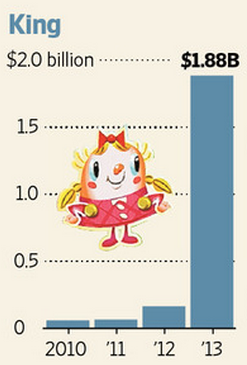Random Variation
By James Kwak
As I previously wrote on this blog, one of my professors at Yale, Ian Ayres, asked his class on empirical law and economics if we could think of any issue on which we had changed our mind because of an empirical study. For most people, it’s hard. We like to think that we form our views based on evidence, but in fact we view the evidence selectively to confirm our preexisting views.
I used to believe that no one could beat the market: in other words, that anyone who did beat the market was solely the beneficiary of random variation (a winner in Burton Malkiel’s coin-tossing tournament). I no longer believe this. I’ve seen too many studies that indicate that the distribution of risk-adjusted returns cannot be explained by dumb luck alone; most of the unexplained outcomes are at the negative end of the distribution, but there are also too many at the positive end. Besides, it makes sense: the idea that markets perfectly incorporate all available information sounds too much like magic to be true.
But that doesn’t mean that everyone who beats the market is actually good at what he does, even if that person gets a $100 million annual bonus. That person would be Andy Hall, the commodities trader who stirred up controversy when he apparently earned a $100 million bonus at Citigroup—in 2008, of all years. (That was a year with huge volatility in the commodities markets.)
The latest news is that Occidental Petroleum, which bought Phibro, Hall’s trading operation, from Citigroup in 2009, is now considering jettisoning its proprietary trading activities. That isn’t to say it was a bad investment; Phibro was profitable for several years after the purchase by Occidental. At the same time, though, Hall’s hedge fund, Astenbeck Capital, has posted mediocre returns—an annualized return of 5 percent since January 2008 (about the same as the total return on the S&P 500), with a drop of 8 percent in 2013.
It’s quite possible that Andy Hall is the real deal: someone whose ex ante, risk-adjusted expected returns are better than those of the markets in which he deals. But that doesn’t mean that his performance spikes, like in 2008, aren’t largely the product of random variation. This is why it’s never a good idea to buy a free agent right after he had a huge year, whether he plays baseball or commodities.
It’s also why it’s not a good idea to buy stock in a company whose revenues look like this—especially when that company has been around since 2002.
That’s not a startup that is enjoying meteoric growth: that’s a company that enjoyed some massive random variation last year. They may be better than the average mobile games company, but 2013 is not a base that they are reliably going to grow from in future years. Which means that coming up with a reasonable valuation is next to impossible.



Simon Johnson's Blog
- Simon Johnson's profile
- 78 followers




